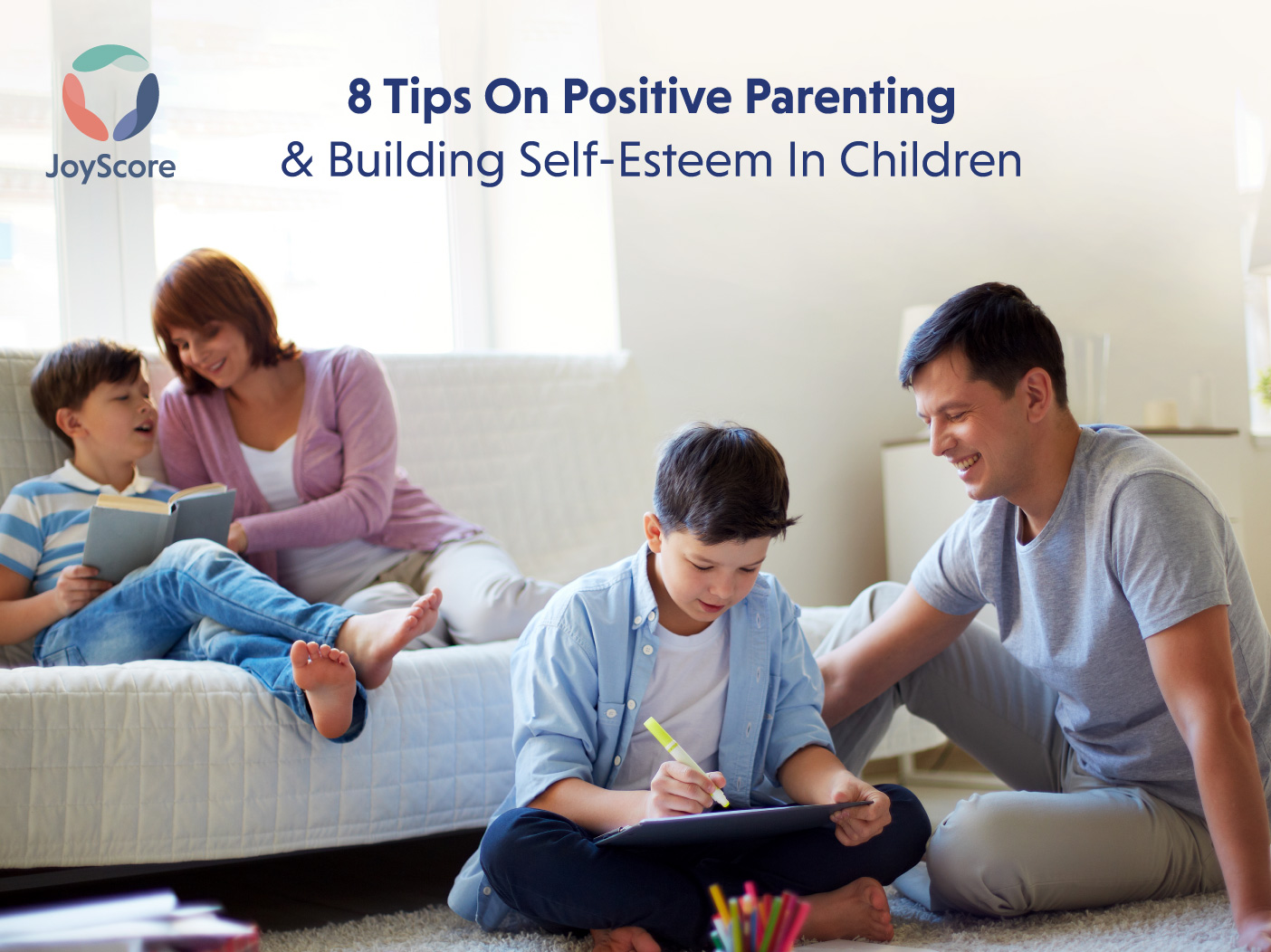8 Tips On Positive Parenting And How To Build High Self-Esteem In Children
Self-esteem is important for children for many reasons. It helps them feel good about themselves and feel confident in their abilities. High self-esteem in children also allows them to cope with setbacks and bounce back from failure.
As parents, you want your children to be happy and fulfilled in their lives. A big part is helping them identify their unique talents and passions while supporting them as they pursue those interests.
One of the best things you can do for your child is to help them develop a strong sense of self-esteem. This will give them the confidence to pursue their dreams and follow their heart.
Children with high self-esteem are more likely to take risks and try new things. They are resilient and more likely to persist in facing difficulties. They are better able to cope with disappointment and failure and are more resilient in the face of setbacks.
On the other hand, children with low self-esteem are more likely to give up easily and avoid situations where they might fail. They may also be more likely to be bullied.
So why does self-esteem matter?
High self-esteem in children matters because it has a positive impact on their lives. It can affect their academic performance, social interactions, and overall well-being.
If you’re worried about your child’s self-esteem, there are a few things you can do to help. Encourage your child to try new things, and praise them for their efforts, even if they fail. Help them to understand that failure is an opportunity to learn and grow. Provide them with love and support. With your help, your child can develop a healthy sense of self-esteem.
One of the Research findings concludes the relationship between self-esteem and parenting techniques as follows –
Mothers with higher self-esteem were more likely to provide their children with greater decision-making freedom, communicate better, be less concerned about their children’s behavior, view their children as more independent, and have children who were more satisfied with the amount of autonomy they were given. Fathers with higher self-esteem reported better communication with their children and were less likely to report using physical forms of discipline. Source
How parents can help to build high self-esteem in children
- Let children understand the benefits of love.
To have high self-esteem, or “in order to love oneself, one has to first be loved, approved of, and nurtured by parent figures. Lacking this parenting, [individuals] cannot develop high self-esteem“ Source
One of the best ways to help your child develop high self-esteem is to show them, love. When children feel loved, they feel valued and important. This, in turn, leads to high self-esteem.
Of course, simply telling your child that you love them is not enough. You need to show actions to back up the words. Spend time with your child, play with them, listen to them, and show them affection. Let them know that they are special to you and that you care about them.
Doing these things will go a long way in helping to build high self-esteem in children. And that, in turn, will help them lead a happy and successful life.

- Teach them that life is a process of learning and growing and that everyone makes mistakes in that journey.
There’s no question that teaching kids that everyone makes a mistake are an important lesson. It’s a part of growing up and learning. But what’s also important is teaching kids they can have high self-esteem, even when they make mistakes.
One of the best ways to do this is to do it yourself. When you make a mistake, be responsible for it. Explain what happened and why it was a mistake. Most importantly, talk about how you will fix it.
3. Empower children to make their choices.
When children make their own choices, it helps to build their self-esteem. When children feel like they are in control of their lives, they feel good about themselves and are more likely to have high self-esteem.
Of course, there are times when parents need to step in and make decisions for their children. But, it is best to let children make their own choices whenever possible. This will help them feel confident and capable and ultimately lead to higher self-esteem.
- Respect their individuality
It’s important to respect our children’s individuality. By doing so, we help them develop a strong sense of self-esteem. When our children feel good about themselves, they can cope with life’s challenges more effectively.
There are many ways we can show respect for our children’s individualities. One way is to let them know that we accept them just the way they are. We can do this by offering positive reinforcement and refraining from criticism.
It’s also important to give our children the opportunity to express themselves. This can be done through creative outlets like art, music, or writing. And, it’s important to listen to what they say without judgment.
Respecting our children’s individuality is one of the best things we can do for them. It helps them feel good about themselves and sets them up for success.
- Identify their unique talents and support them to pursue their passion.
The most important thing for parents is to provide their children with a supportive environment where they can feel safe and secure. The best way to do this is by setting clear boundaries and giving your child the freedom to explore their interests. When your child feels loved and cared for, they’re less likely to suffer from depression or anxiety.

- Praise their efforts but do not overpraise.
You don’t need to constantly praise them for every little thing they do right; this will only make them want more praise which could lead them to struggle with perfectionism or self-esteem issues later on in life (if you praise everything that comes out of their mouth). Keep things in moderation.
- Don’t criticize harshly;
Try to avoid being overly critical or negative. Instead, focus on the positive aspects of their behavior and encourage them to continue doing things well. Praise is a great way to build high self-esteem in children. By highlighting their strengths and accomplishments, you can help them feel good about themselves and feel confident in their abilities.
- Be a good role model.
It’s important for parents to be good role models for their children. Setting a good example can help your child develop high self-esteem. Children learn from their parent’s attitudes. If you’re always negative and pessimistic, your child is likely to develop a negative outlook on life. Children need to see that their parents are responsible and reliable. This means being on time, keeping your commitments, and following through on your promises.
Thus, providing a supportive environment for a child with high self-esteem is important. This means praising accomplishments, empathizing with feelings, and affirming feelings and opinions. It is also important to avoid criticizing or shaming the child.
Positive parenting and high self-esteem go hand in hand because they encourage kids to develop the skills they need to make their own decisions while also empowering them to believe they can do great things successfully.
Download the Joyscore app for more tips on self-esteem and positive parenting for a happier and healthier life.
Download the Joyscore app Now!
Download on the Appstore
Get it on Google Play



